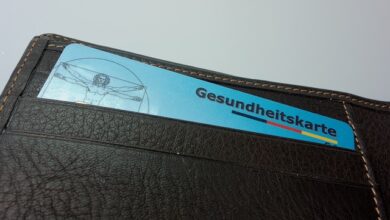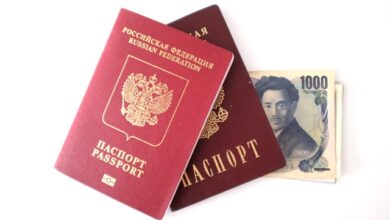Fast-Track Naturalization: Who Qualifies?

Naturalization is the process by which a foreign national becomes a citizen of a country where they were not born. While traditional naturalization pathways often require years of residency, language proficiency, and cultural integration, many countries offer fast-track naturalization programs for specific groups of individuals who meet certain criteria. These expedited processes are designed to attract talent, investment, or individuals with strong ties to the country.
In this article, we’ll explore who qualifies for fast-track naturalization in various contexts, focusing on common categories such as ancestry, investment, exceptional contributions, and residency exemptions. We’ll also provide examples from different countries to give you a clearer understanding of how these programs work.
1. Citizenship by Descent (Ancestry-Based Fast-Track)
Many countries allow individuals to claim citizenship if they can prove direct lineage to citizens of that nation. This is one of the most common forms of fast-track naturalization.
Examples:
- Italy :
Italy offers citizenship to individuals with Italian ancestors, even if their forebears emigrated generations ago. The “jure sanguinis” principle allows descendants of Italian citizens to apply for citizenship without needing to reside in Italy. However, applicants must demonstrate an unbroken chain of descent and provide birth, marriage, and death certificates for each generation. - Ireland :
Ireland grants citizenship to individuals born abroad to at least one Irish-born grandparent. This process is relatively straightforward but requires proof of ancestry through official records. - Greece :
Greece allows individuals of Greek descent (omogenia ) to apply for citizenship after proving their lineage through baptismal certificates, family trees, or other documentation.
Who Qualifies?
- Individuals with at least one parent, grandparent, or great-grandparent who was a citizen of the country.
- Ability to provide verifiable documentation of ancestry.
2. Economic Contribution (Investor Visas and Golden Passports)
Some countries offer fast-track naturalization to investors who contribute significantly to the economy. These programs are often referred to as “Golden Visa” schemes and typically involve real estate purchases, business investments, or donations.
Examples:
- Portugal (Golden Visa Program) :
Portugal grants residency permits to non-EU investors who purchase property worth €500,000 or more, create jobs, or invest in research activities. After five years of legal residency, investors can apply for citizenship. - Malta (Individual Investor Programme – IIP) :
Malta’s program requires applicants to make significant financial contributions, including a €690,000 donation to the National Development Fund, purchase property, and invest in government bonds. Successful applicants receive Maltese citizenship within 12–36 months. - Cyprus :
Until recently, Cyprus offered citizenship to investors who purchased real estate worth €2 million. Although this program has been suspended due to controversies, similar initiatives may re-emerge under stricter regulations.
Who Qualifies?
- High-net-worth individuals willing to make substantial economic contributions.
- Investors who meet specific thresholds for property acquisition, job creation, or capital infusion.
- Clean criminal record and compliance with due diligence checks.
3. Exceptional Contributions to Society
Certain countries expedite naturalization for individuals who have made outstanding contributions in fields like science, arts, sports, or humanitarian work.
Examples:
- United States (EB-1 Visa) :
The U.S. offers green cards (and eventually citizenship) to individuals with extraordinary abilities in sciences, arts, education, business, or athletics. Applicants must demonstrate sustained national or international acclaim. - Germany :
Germany provides discretionary naturalization for individuals who have rendered exceptional services to the country, such as Nobel laureates, renowned artists, or top-tier researchers. - France :
France awards citizenship to individuals who have distinguished themselves through acts of bravery, humanitarian efforts, or professional excellence benefiting French society.
Who Qualifies?
- Individuals recognized globally or nationally for their achievements.
- Those whose work aligns with the country’s strategic interests.
- Demonstrated commitment to contributing positively to the host nation.
4. Military Service or Public Duty
Serving in a country’s armed forces or holding public office can sometimes lead to accelerated naturalization.
Examples:
- United States :
Non-citizens serving honorably in the U.S. military may qualify for expedited citizenship under Section 328 or 329 of the Immigration and Nationality Act. During times of conflict, service members can become citizens in as little as six months. - South Korea :
Foreign nationals who complete mandatory military service in South Korea may be eligible for fast-tracked naturalization upon discharge.
Who Qualifies?
- Active-duty military personnel or veterans.
- Individuals holding key positions in government or public institutions.
5. Marriage or Long-Term Partnership
Marriage to a citizen is another common route to fast-track naturalization, though requirements vary widely by country.
Examples:
- Canada :
Spouses of Canadian citizens or permanent residents can apply for citizenship after three years of residency instead of the standard five years. - Spain :
Foreigners married to Spanish citizens can apply for citizenship after one year of legal residency, compared to the usual ten years. - United Kingdom :
Spouses of British citizens can apply for indefinite leave to remain after five years and citizenship after six years.
Who Qualifies?
- Married couples or registered partners in long-term relationships.
- Proof of genuine partnership and shared life together.
6. Refugee or Stateless Status
Refugees and stateless persons are often granted expedited pathways to citizenship due to their vulnerable status.
Examples:
- Sweden :
Refugees granted asylum in Sweden can apply for citizenship after four years of residency instead of the standard five years. - Australia :
Humanitarian entrants can access streamlined citizenship processes, provided they meet character and residency requirements.
Who Qualifies?
- Recognized refugees or stateless individuals granted protection.
- Compliance with residency and integration requirements.
7. Special Residency Programs
Some countries offer unique residency programs that lead to fast-tracked citizenship after a short period.
Examples:
- Turkey :
Turkey grants citizenship to foreigners who purchase property worth $400,000 or deposit $500,000 in a Turkish bank account. Citizenship is awarded within three years. - Dominican Republic :
Investors who spend $200,000 on real estate or businesses can obtain citizenship in just two years.
Who Qualifies?
- Participants in special residency or investment programs.
- Fulfillment of all program-specific conditions.
Key Considerations Before Applying
While fast-track naturalization offers numerous advantages, there are important factors to keep in mind:
- Costs : Many programs, especially investor visas, require significant financial outlays.
- Due Diligence : Countries conduct thorough background checks, so maintaining a clean record is essential.
- Integration Requirements : Some nations mandate knowledge of the local language, culture, or history.
- Legal Assistance : Given the complexity of these processes, consulting immigration lawyers or experts is highly recommended.



